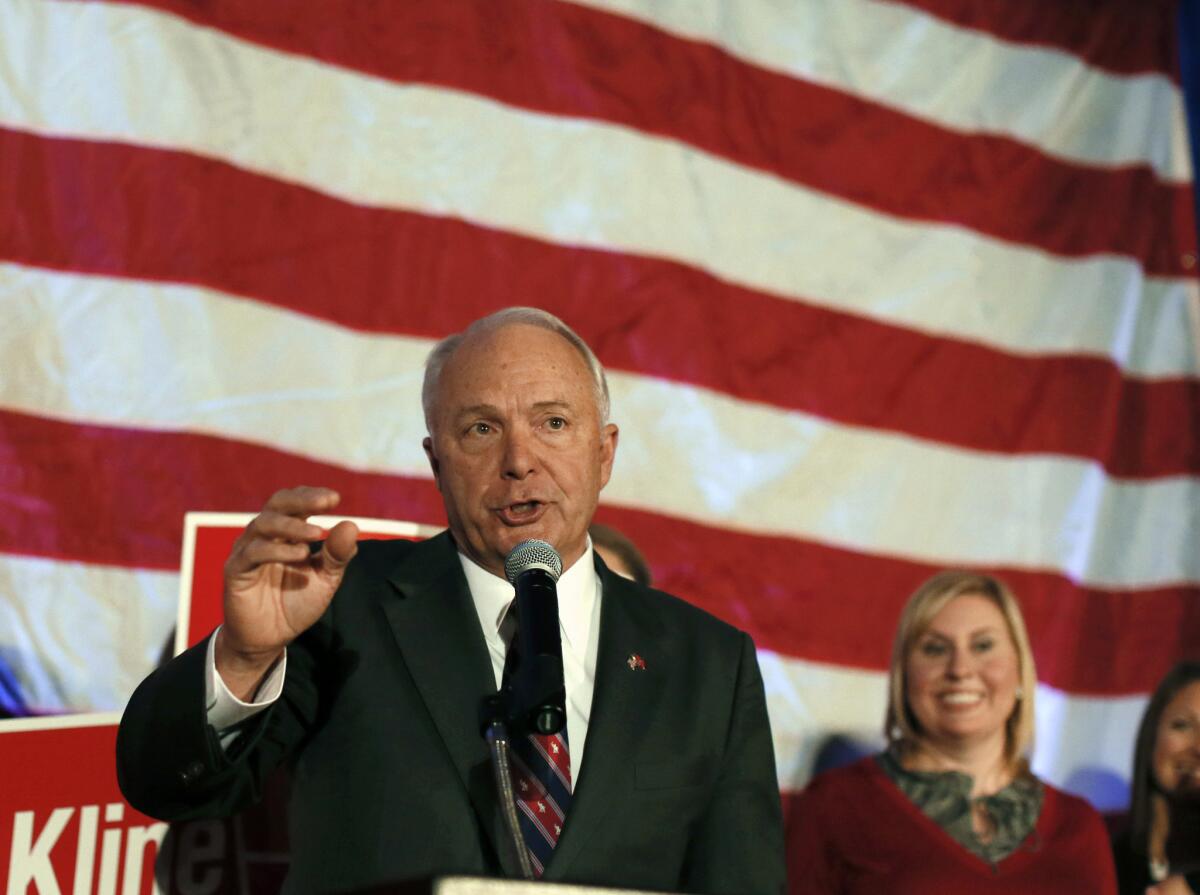That awful congressional plan to allow pension cuts heads for enactment

- Share via
The congressional proposal to deal with a supposed crisis in worker pensions by allowing trustees to slash the benefits of already retired workers to shreds is heading toward enactment.
We reported on this plan last week, observing that its details were secret. They still are. Reps. John Kline (R-Minn.) and George Miller (D-Martinez), the chairman and ranking Democrat on the House Committee on Education and the Workforce, told reporters on a conference call late Tuesday that the measure is being passed over to the House Rules Committee, which will move it as an amendment to an omnibus spending bill, as early as Wednesday. Senate action will follow, presumably no later than Thursday, when Congress departs for vacation.
The proposal is aimed at multiemployer pension plans, which are generally negotiated by a union to cover employees of all companies in a given industry. About 1,400 such plans cover about 10 million workers, according to the Pension Rights Center. About 150 to 200 of the plans, covering 1.5 million workers, are seriously underfunded and could run out of money sometime during the next 20 years.
The congressional proposal allows trustees of those plans to slash benefits sharply for retirees to give the plans a longer lease on life. It requires a vote of approval by active workers and retirees before that could be done -- but some pension advocates say that would only pit workers against retirees, with the latter coming out poorer.
Nothing Kline or Miller said Tuesday makes the plan sound much better. Asked why it’s so urgent to pass a historic change in federal labor law in the final hours of a congressional session, without exposing the details to public view, much less to public hearings, they said that many of the affected pension plans are within a few years of insolvency.
“We could push now and get this done,” Kline said, “or kick the can down the road and lose weeks and months. For some plans, their financial situation gets worse constantly.”
Added Miller: “This may mean some benefit cuts, but it may mean a plan will last another decade or even longer.” He and Kline said there would be protections for retirees who are disabled or 75 or older, but they offered few specifics beyond a sketchy fact sheet.
Yet there’s a real risk that panicky trustees -- usually union and employer representatives -- could act prematurely, cutting the income of retirees who can’t make it up from other sources. Indeed, the condition of many multiemployer pension funds has been improving recently, thanks to the strong investment markets and a better economy. That implies that there may be less need for urgency.
Pressure for the last-minute enactment apparently comes from trustees of some plans, who want latitude in cutting benefits that federal law denies them. Under ERISA, the 1974 law governing pensions in the private sector, benefits already earned by a worker can’t be cut.
Carving out an exception for multiemployer plans is a big deal; doing so in haste, and secretly, is a bigger deal. Some major unions are backing the deal, but others, including the International Association of Machinists, are firmly in opposition. The Teamsters, who have been on the fence, weighed in against the proposal with a letter to congressional leaders Tuesday. (The Teamsters took particular exception to a special deal that was rumored to be in the offing for UPS, but Kline and Miller said no such deal is in their proposal.)
At this moment the pension bill appears to be a legislative juggernaut. “The last ‘I’ has been dotted and the last ‘T’ has been crossed,” Kline said. He and Miller presented their achievement as a huge boon for workers and retirees, but it could be a disaster instead. No one will know until they see the language, but that may not happen until it’s too late.
Keep up to date with the Economy Hub. Follow @hiltzikm on Twitter, see our Facebook page, or email [email protected].
More to Read
Inside the business of entertainment
The Wide Shot brings you news, analysis and insights on everything from streaming wars to production — and what it all means for the future.
You may occasionally receive promotional content from the Los Angeles Times.










